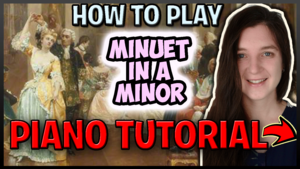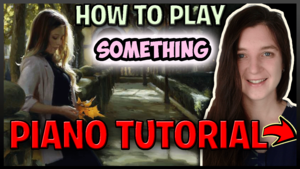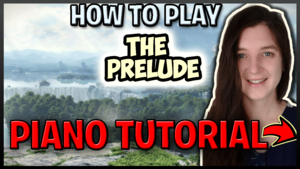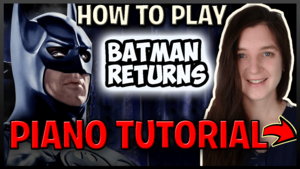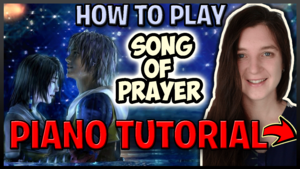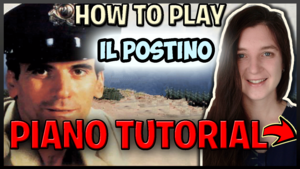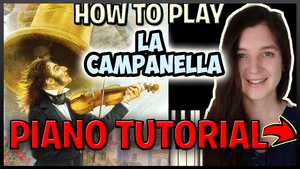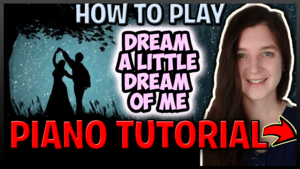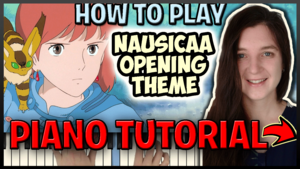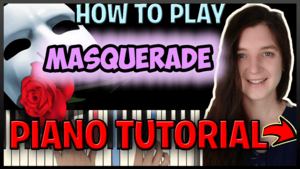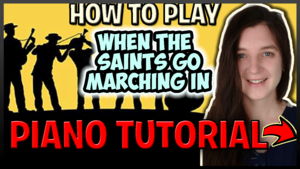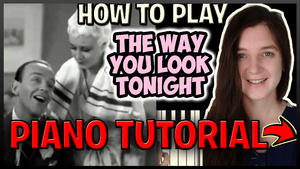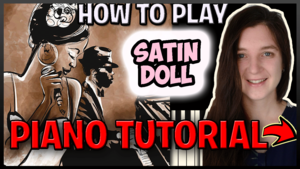
I Write The Songs
by Bruce Johnston
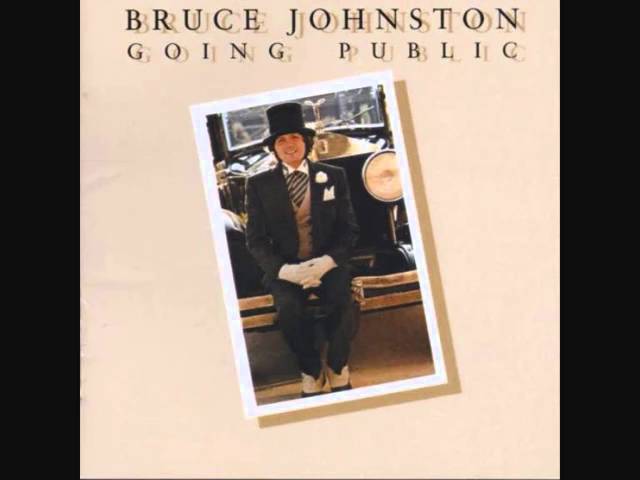
" I Write The Songs " is a popular song written by Bruce Johnston in 1975. Barry Manilow's version reached number one on the Billboard Hot 100 chart in January 1976 after spending two weeks atop the Billboard adult contemporary chart in December 1975. It won a Grammy Award for Song of the Year and was nominated for Record of the Year in 1977. Billboard ranked it as the No. 13 song of 1976.
[video width="640" height="360" mp4="https://www.easypianoonline.com/wp-content/uploads/2020/07/IWriteTheSongs.mp4"]
Lyrics
I Write The Songs
I've been alive forever, and I wrote the very first song
I put the words and the melodies together
I am music and I write the songs
I write the songs that make the whole world sing
I write the songs of love and special things
I write the songs that make the young girls cry
I write the songs, I write the songs
My home lies deep within you
And I've got my own place in your soul
Now, when I look out through your eyes
I'm young again, even though I'm very old
Oh my music makes you dance
And gives you spirit to take a chance
And I wrote some rock 'n' roll so you can move
Music fills your heart
Well, that's a real fine place to start
It's from me it's for you
It's from you, it's for me
It's a worldwide symphony
Songwriters: Bruce Johnston

The Notebook
Main Theme
by Aaron Zigman
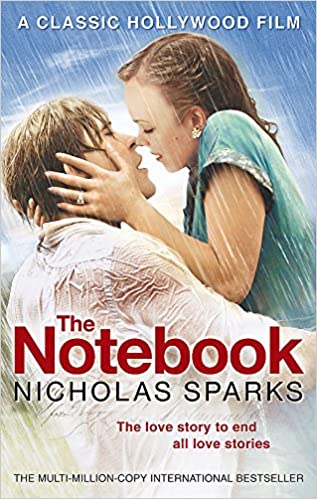
" The Notebook Main Theme " is a soundtrack to the film The Notebook. The Notebook is a 2004 romantic drama film directed by Nick Cassavetes and written by Jeremy Leven from Jan Sardi's adaptation of the 1996 novel by Nicholas Sparks. The film stars Ryan Gosling and Rachel McAdams as a young couple who fall in love in the 1940s. Their story is read from a notebook in the present day by an elderly man (played by James Garner), telling the tale to a fellow nursing home resident (played by Gena Rowlands, who is Cassavetes's mother).
[video width="640" height="360" mp4="https://www.easypianoonline.com/wp-content/uploads/2020/07/TheNotebook.mp4"]

Trumpet Concerto In E Flat
3rd Movement
by Franz Joseph Haydn
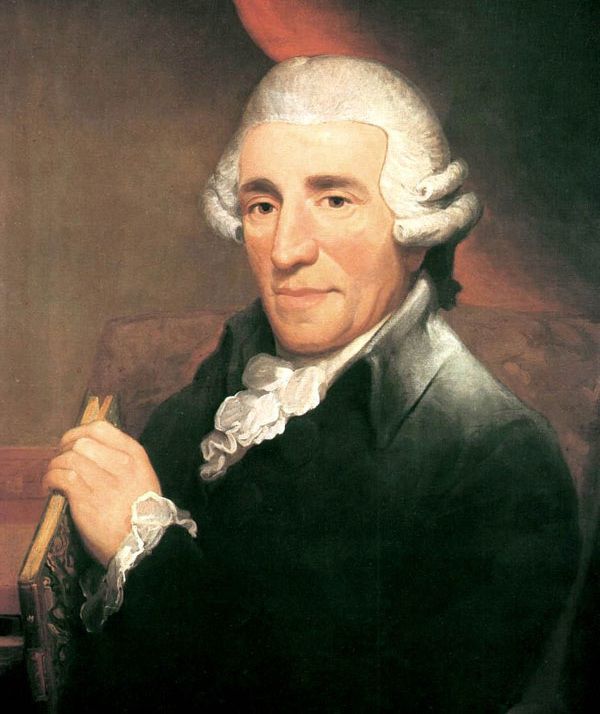
" Trumpet Concerto In E flat " was written by Franz Joseph Haydn, an Austrian composer of the Classical period. He was instrumental in the development of chamber music such as the piano trio. His contributions to musical form have earned him the epithets "Father of the Symphony" and "Father of the String Quartet".
Haydn spent much of his career as a court musician for the wealthy Esterházy family at their remote estate. Until the later part of his life, this isolated him from other composers and trends in music so that he was, as he put it, "forced to become original". Yet his music circulated widely, and for much of his career he was the most celebrated composer in Europe.
He was a friend and mentor of Mozart, a tutor of Beethoven, and the older brother of compos-er Michael Haydn.
[video width="640" height="360" mp4="https://www.easypianoonline.com/wp-content/uploads/2020/07/TrumpetConcertoInEFlat.mp4"]

Pizzicato Polka
by Johann Strauss
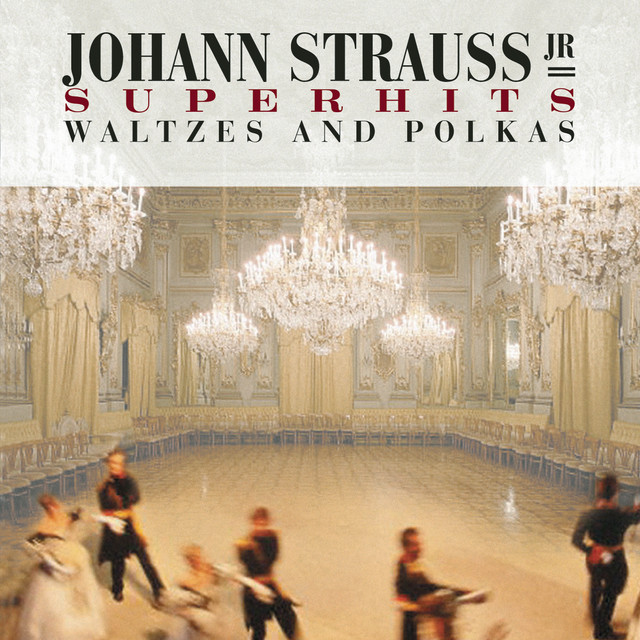
" Pizzicato Polka " Op. 449, is a polka composed by Johann Strauss II. It was written in 1892 for concerts to be given under Eduard Strauss in Hamburg. Strauss later inserted the work as a ballet between the second and third acts of his operetta Fürstin Ninetta [de] (Princess Ninetta).
The work is named Pizzicato Polka because the stringed instruments were plucked (pizzicato) throughout. There is also an old Pizzicato Polka [de] which Johann Strauss composed in 1869 with his brother Josef.
[video width="640" height="360" mp4="https://www.easypianoonline.com/wp-content/uploads/2020/07/PizzicatoPolka.mp4"]

[xyz-ihs snippet="NavigationLinksBlock-Common"]
The Rose Of Tralee
- Irish Traditional
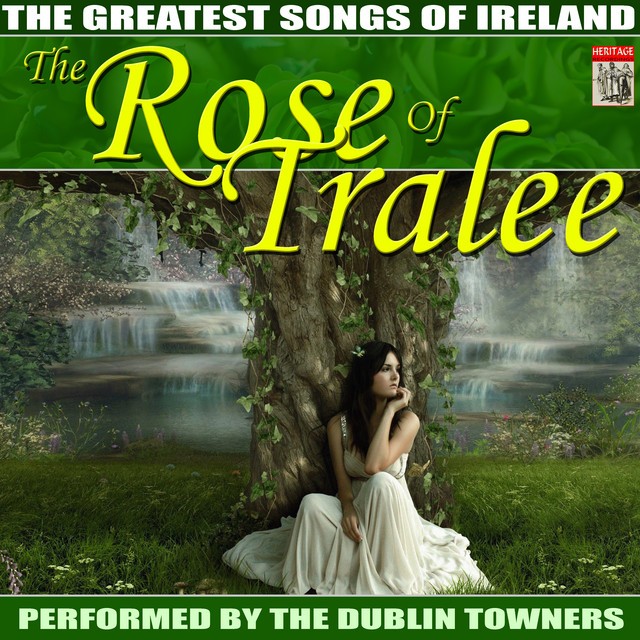
" The Rose Of Tralee is a nineteenth-century Irish ballad about a woman called Mary, who because of her beauty was called The Rose of Tralee. The Rose of Tralee International Festival had been inspired by the ballad.
The words of the song are credited to Edward Mordaunt Spencer and the music to Charles William Glover, but a story circulated in connection with the festival claims that the song was written by William Pembroke Mulchinock, out of love for Mary O'Connor, a poor maid in service to his family.
In 2019 the Rose of Tralee International Festival, as part of their 60th Anniversary living history promotion, employed the services of Dr. Andrea Nini, a forensic linguist working on cases of disputed authorship. His report concluded that a poem written by Tralee poet William Pembroke Mulchinock called Smile Mary My Darling was published and passed off by Edward Mordaunt Spencer in 1846 in his book of poetry The Heir of Abbotsville. This poem was adapted into a poem called The Rose of Tralee with the air being re-set by Charles William Glover from one of his previous ballads.
[video width="640" height="360" mp4="https://www.easypianoonline.com/wp-content/uploads/2020/07/TheRoseOfTralee.mp4"]
Lyrics
The pale moon was rising above the green mountain
The sun was declining beneath the blue sea
When I strayed with my love to the pure crystal fountain
That stands in beautiful vale of Tralee.
She was lovely and fair as the rose of the summer
Yet, 'twas not her beauty alone that won me
Oh no! 'Twas the the truth in her eye ever beaming
That made me love Mary, the Rose of Tralee.
The cool shades of evening their mantle were spreading
And Mary all smiling was listening to me
The moon through the valley her pale rays was shedding
When I won the heart of the Rose of Tralee.
Though lovely and fair as the rose of the summer
Yet, 'twas not her beauty alone that won me
Oh no! 'Twas the the truth in her eye ever beaming
That made me love Mary, the Rose of Tralee.
Songwriters: Edward Mordaunt Spencer, Charles William Glover

Misty Mountains
by Donaldson / Long / Roche / Roddick
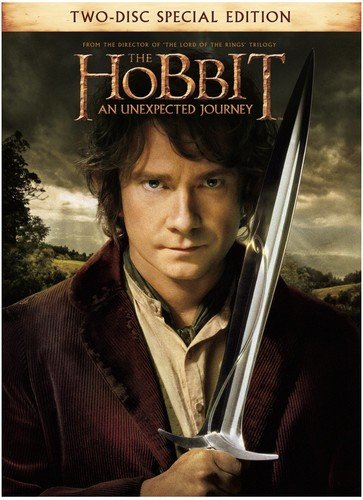
" Misty Mountains " is a song sung by Thorin II Oakenshield and Company in J.R.R. Tolkien's novel The Hobbit. As Tolkien left no title for the song, "Far Over The Misty Mountains Cold" is sometimes referred to as The Dwarf Song, Thorin's Song, The Song of The Lonely Mountain, or shortened to simply "The Misty Mountains".
The song explains the backstory of Thorin and Company, and foreshadows the adventure to come for the group. It also helps lead to the large development of Bilbo from his often quiet and calm "Baggins" nature, to the more adventurous and outgoing "Tookish" side of his heritage, an evolution that takes most of the novel.
[video width="640" height="360" mp4="https://www.easypianoonline.com/wp-content/uploads/2020/07/MistyMountains.mp4"]
Lyrics
Misty Mountains
Far over the Misty Mountains cold
To dungeons deep and caverns old
We must away, ere break of day
To find our long forgotten gold
The pines were roaring on the height
The winds were moaning in the night
The fire was red, it flaming spread
The trees like torches blazed with light
The wind was on the withered heath
But in the forest stirred no leaf:
There shadows lay be night or day
And dark things silent crept beneath
(Aaaahh aaahh...)
The wind went on from West to East
All movement in the forest ceased
But shrill and harsh across the marsh
Its whistling voices were released
Farewell we call to hearth and hall!
Though wind may blow and rain may fall
We must away ere break of day
Far o'er the wood and mountain tall
Songwriters: David Geoffrey Donaldson, Stephen Gerard Roche, Janet Roddick, David Long

Home On The Range
by Dan Kelly
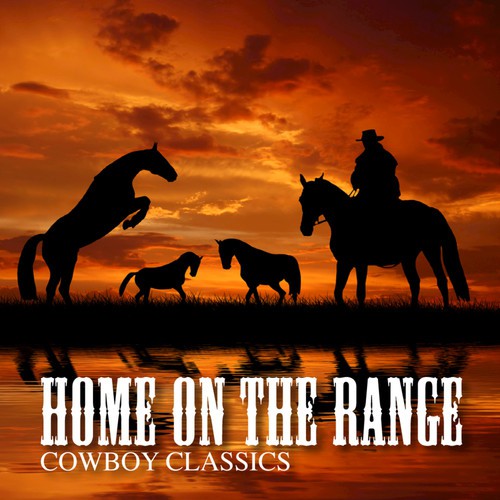
" Home On The Range " is a classic western folk song sometimes called the "unofficial anthem" of the American West. It is also the official anthem of the state of Kansas. Dr. Brewster M. Higley of Smith County, Kansas, wrote the lyrics in the poem "My Western Home" in 1872. In 1947, it became the Kansas state song. In 2010, members of the Western Writers of America chose it as one of the Top 100 western songs of all time. Higley's friend Daniel E. Kelley (1808–1905) wrote the melody on his guitar. Higley's original words are similar to those of the modern version of the song, but not identical; the original did not contain the words "on the range". The song was eventually adopted by ranchers, cowboys, and other western settlers, and it spread throughout the United States in various forms.
[video width="640" height="360" mp4="https://www.easypianoonline.com/wp-content/uploads/2020/07/HomeOnTheRange.mp4"]
Lyrics
Home On The Range
Oh, give me a home where the buffalo roam
Where the deer and the antelope play
Where seldom is heard a discouraging word
And the skies are not cloudy all day
Home, home on the range
Where the deer and the antelope play
Where seldom is heard a discouraging word
And the skies are not cloudy all day
The red man was pressed from this part of the west
It's not likely he'll ever return
To the banks of Red River where seldom if ever
His flickering campfires still burn
Home, home on the range
Where the deer and the antelope play
Where seldom is heard a discouraging word
And the skies are not cloudy all day
How often at night when the heavens are bright
I see the light of those flickering stars
Have I laid there amazed and asked as I gazed
If their glory exceeds that of love
Home, home on the range
Where the deer and the antelope play
Where seldom is heard a discouraging word
And the skies are not cloudy all day
Songwriters: Daniel E. Kelley, Dr. Brewster M. Higley

Lullaby
(Wiegenlied Op.49, No.4)
by Johannes Brahms
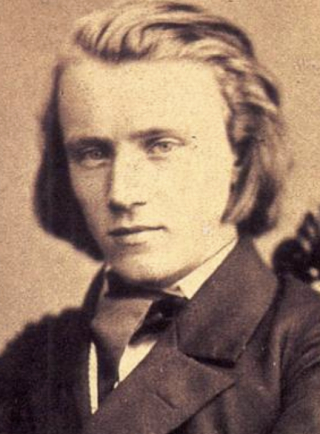
" Lullaby " (Wiegenlied) Op. 49, No. 4, is a lied for voice and piano written by by Johannes Brahms. which was first published in 1868. It is one of the composer's most popular songs. Brahms based the music of his "Wiegenlied" partially on "S'Is Anderscht", a duet by Alexander Baumann [de] published in the 1840s. The cradle song was dedicated to Brahms's friend, Bertha Faber, on the occasion of the birth of her second son. Brahms had been in love with her in her youth and constructed the melody of the "Wiegenlied" to suggest, as a hidden counter-melody, a song she used to sing to him. The lyrics are from Des Knaben Wunderhorn, a collection of German folk poems.
[video width="640" height="360" mp4="https://www.easypianoonline.com/wp-content/uploads/2020/07/LullabyBrahms.mp4"]
Lyrics
Brahms Lullaby (English Translation)
Good evening, good night,
With roses covered,
With cloves adorned,
Slip under the covers.
Tomorrow morning, if God wills,
you will wake once again.
Good evening, good night.
By angels watched,
Who show you in your dream
the Christ-child's tree.
Sleep now blissfully and sweetly,
see the paradise in your dream.
Songwriters: Johannes Brahms, Georg Scherer
Brahms Lullaby (German Original Text)
Guten Abend, gut' Nacht,
mit Rosen bedacht,
mit Näglein besteckt,
schlupf' unter die Deck':
Morgen früh, wenn Gott will,
wirst du wieder geweckt.
Guten Abend, gut' Nacht,
von Englein bewacht,
die zeigen im Traum
dir Christkindleins Baum:
schlaf nun selig und süss,
schau im Traum 's Paradies.
Songwriters: Johannes Brahms, Georg Scherer

An Old Castle
by Modest Mussorgsky
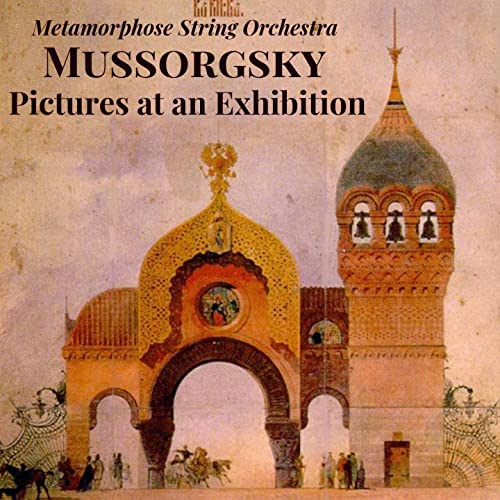
" An Old Castle " is a movement from a piano suite titled: Pictures at An Exhibition, by Russian composer Modest Mussorgsky in 1874. This suite consists of ten pieces (plus a recurring, varied Promenade). Pictures at An Exhibition is Mussorgsky's most famous piano composition, and has become a showpiece for virtuoso pianists. It has become further known through various orchestrations and arrangements produced by other musicians and composers. With Maurice Ravel's 1922 version for full symphony orchestra being by far the most recorded and performed.
[video width="640" height="360" mp4="https://www.easypianoonline.com/wp-content/uploads/2020/07/AnOldCastle.mp4"]

Playlist of Tutorials for Songs from Children’s Songs (List Ordered by Song Name) A B C D E F G H I J K L…

Playlist of Tutorials for Songs from Brahms, Johannes (List Ordered by Song Name) A B C D E F G H I J K L…

Playlist of Tutorials for Songs from Mussorgsky, Modest (List Ordered by Song Name) A B C D E F G H I J K L…

Playlist of Tutorials for Songs from Haydn, Franz Joseph (List Ordered by Song Name) A B C D E F G H I J K…

Playlist of Tutorials for Songs from Ballet (List Ordered by Song Name) A B C D E F G H I J K L M…

Le Festin
by Michael Giacchino
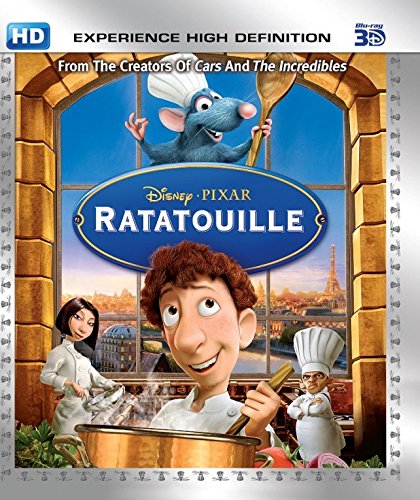
" Le Festin " is a song from the soundtrack of Ratatouille. The song title means "The Feast" in French. It was written by Michael Giacchino and performed by Camille.
[video width="640" height="360" mp4="https://www.easypianoonline.com/wp-content/uploads/2020/07/LeFestin.mp4"]
Lyrics
Le Festin (Original text)
Les rêves des amoureux sont comme le bon vin,
Ils donnent de la joie ou bien du chagrin
Affaibli par la faim je suis malheureux
Volant en chemin tout ce que je peux
Car rien n'est gratuit dans la vie
Éspoire est un plât bien trop vite consommé
À sauter les repas, je suis habitué
Un voleur, solitaire, est triste à nourrir
À nous, je suis amer,
Je veux réussir
Car rien n'est gratuit dans la vie
Jamais on ne redira
Que la course aux étoiles, ça n'est pas pour moi
Laisser-moi vous émerveillez, prendre mon envol
Nous allons enfin nous réga... ler
La fête va enfin commencer
Et sortez les bouteilles, finis les ennuis
Je dresse la table, demain nouvelle vie
Je suis heureux à l'idée de ce nouveau destin
Une vie à me cacher, et puis libre enfin
Le festin est sur mon chemin
Une vie à me cacher et puis libre enfin
Le festin est sur mon chemin
Songwriters: Michael Giacchino
The Feast (English Translation)
The dreams of lovers are like good wine
They give joy or even sorrow
Weakened by hunger, I am unhappy
Stealing on my way everything I can
Because nothing in life is free
Hope is a dish too soon finished
I am accustomed to skipping meals
A thief alone and hungry is sad enough to die
As for us, I am bitter, I want to succeed
Because nothing in life is free
Never will they tell me that I cannot shoot for the stars;
Let me fill you with wonder, let me take flight
We will finally fea . . . st
The party will finally start
And bring out the bottles, the troubles are over
I'm setting the table; tomorrow is a new life
I am happy at the idea of this new destiny
A life spent in hiding, and now I'm finally free
The feast is on my path
A life spent in hiding, and now I'm finally free
The feast is on my path. . .
Songwriters: Michael Giacchino



